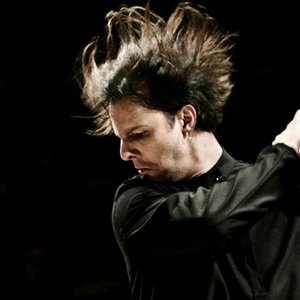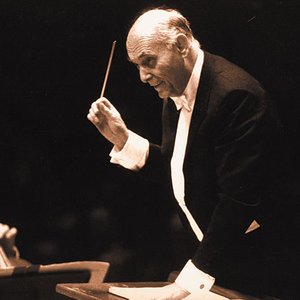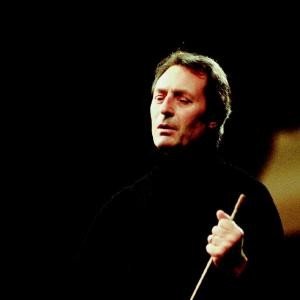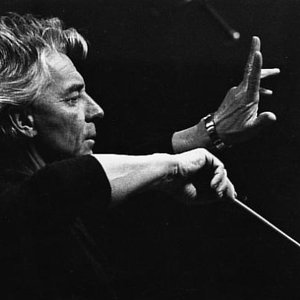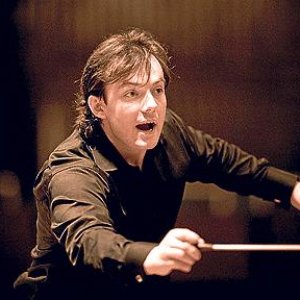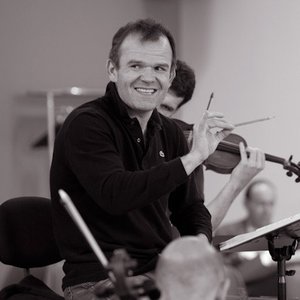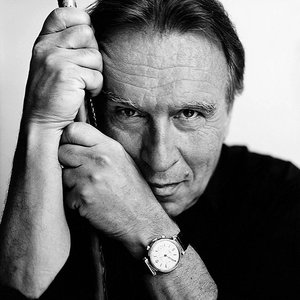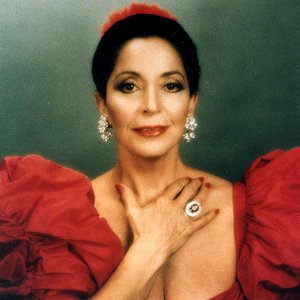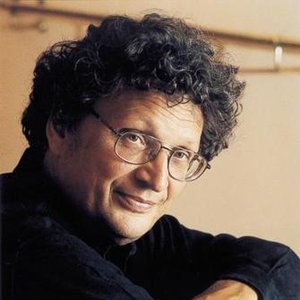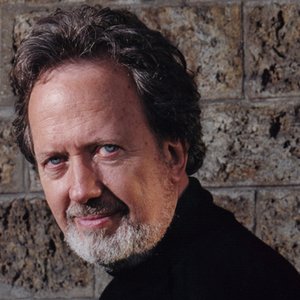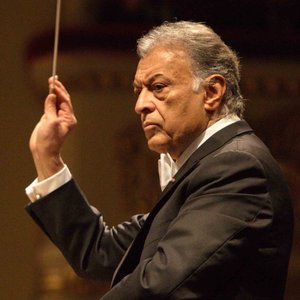Biography
-
Born
3 July 1930
-
Born In
Berlin, Germany
-
Died
13 July 2004 (aged 74)
Carlos Kleiber (3 July 1930 - 13 July 2004) was a German-born Austrian conductor.
He was born as Karl Ludwig Kleiber in Berlin, the son of the Austrian conductor Erich Kleiber and Ruth Goodrich, an American. In 1935, the Kleiber family emigrated to Buenos Aires, after Erich Kleiber had resigned his post at the Berlin Opera in protest over the Nazi Party's policies. Karl's name became Carlos. As a youth, he had an English governess, grew up in English boarding schools in Argentina and later studied in New York and Zurich. He also composed, sang, and played piano and timpani. While his father noticed his son's musical talents, Erich Kleiber nevertheless dissuaded Carlos from pursuing a musical career: "What a pity the boy is musically talented", wrote his father to a friend.
Carlos Kleiber initially studied chemistry in Zürich, but soon decided to dedicate himself to music. He was repetiteur at the Gartnerplatz Theatre in Munich in 1952, and became Kapellmeister at Potsdam in 1954. From 1958 to 1964 he was Kapellmeister at the Deutsche Oper am Rhein in Düsseldorf and Duisburg, and then at the Opera in Zürich from 1964 to 1966. Between 1966 and 1973 he was first Kapellmeister in Stuttgart, his last permanent post. During the following years, he often conducted at the Bavarian State Opera in Munich.
During his freelance career, Kleiber restricted his conducting appearances to a select number of occasions. He made his British debut in 1966 with a performance at the Edinburgh Festival of Alban Berg's opera Wozzeck, a work his father had conducted at its premiere in 1925. He made his Bayreuth debut in 1974 with a performance of Richard Wagner's Tristan und Isolde.
His American debut came in 1978 with the Chicago Symphony Orchestra, where he again conducted in 1983, his only US orchestra appearances. His New York Metropolitan Opera debut was in 1988, conducting Giacomo Puccini's La bohème with Luciano Pavarotti and Mirella Freni. In 1989, following Herbert von Karajan's resignation from the Berlin Philharmonic Orchestra, Kleiber was offered, and declined, the post of the orchestra's next music director. Kleiber returned to the Met in 1990 to conduct Otello and Der Rosenkavalier.
Kleiber kept out of the public eye and reportedly never gave an official interview. After he resigned from the Bavarian State Opera, his appearances became less frequent, and he made only a few recordings. Most of these are regarded as very fine; his versions of Ludwig van Beethoven's fifth and seventh symphonies with the Vienna Philharmonic Orchestra and of the Symphony No. 4 and No. 7 (Beethoven) with the Bavarian State Orchestra are particularly notable. Other notable recordings include Johannes Brahms' Symphony No. 4 and Franz Schubert's third and eighth ("Unfinished") symphonies, also with the Vienna Philharmonic, recordings of Dvořák's Concerto for piano and orchestra with Sviatoslav Richter, Carl Maria von Weber's Der Freischütz, Johann Strauss' Die Fledermaus, Giuseppe Verdi's La Traviata and Richard Wagner's Tristan und Isolde.
Kleiber's unique conducting style is preserved on video in a number of performances: Beethoven's Symphony No. 4 and Symphony No. 7 from the Concertgebouw in Amsterdam, Johann Strauss' Die Fledermaus from Munich, Richard Strauss' Der Rosenkavalier from both Munich and Vienna, Wolfgang Amadeus Mozart's 36th symphony and Brahms' second symphony from the Musikverein in Vienna ; Beethoven's Coriolan Overture, Mozart's 33rd and Brahms' fourth symphonies from Munich and Bizet's Carmen again from Vienna. He led the New Year's Concert of the Vienna Philharmonic in 1989 and 1992, and these are both preserved on video.
He effectively retired from concert life in the early 1990s, occasionally appearing to give private concerts or benefit concerts. For one such event in Ingolstadt , instead of the usual fee, Kleiber received a new Audi made to his specifications. In the opinion of many of his colleagues and audiences who have experienced his meticulously rehearsed but ever spontaneous and inspired performances, this eccentric genius is the greatest conductor of all time, first among equals, despite the paucity of his appearances.
He is buried in the Slovenian village of Konjšica near Litija in 2004, together with his wife Stanislava Brezovar, a ballet dancer, who died 7 months earlier. He and his wife had two children, a son, Marko, and a daughter, Lillian.
Official discography (complete)
1973: Carl Maria von Weber: Der Freischütz, Staatskapelle Dresden, DG. Soloists: Gundula Janowitz, Edith Mathis, Peter Schreier, Theo Adam, Bernd Weikl, Siegfried Vogel, Franz Crass.
1973: R.Strauss : Der Rosenkavalier - complete, Orfeo D'or
1974: Ludwig van Beethoven: Symphony No. 5, Vienna Philharmonic Orchestra, Deutsche Grammophon.
1975: Johann Strauss II: Die Fledermaus, Orchestra of the Bavarian State Opera, Munich, Deutsche Grammophon. Soloists: Hermann Prey, Julia Varady, Lucia Popp, René Kollo, Ivan Rebroff, Bernd Weikl.
1975-1976: Ludwig van Beethoven: Symphony No. 7, Vienna Philharmonic, Deutsche Grammophon.
1976: Antonín Dvořák: Concerto for piano and orchestra, Orchestra of the Bavarian State Opera, EMI. Piano: Sviatoslav Richter.
1976-1977: Giuseppe Verdi: La traviata, Orchestra of the Bavarian State Opera, Deutsche Grammophon. Soloists: Ileana Cotrubaş, Plácido Domingo, Sherrill Milnes.
1978: Franz Schubert: Symphony No. 3, Vienna Philharmonic, Deutsche Grammophon.
1978: Franz Schubert: Symphony No. 8 "Unfinished", Vienna Philharmonic, Deutsche Grammophon.
1980: Johannes Brahms: Symphony No. 4, Vienna Philharmonic, Deutsche Grammophon.
1980-1982: Richard Wagner: Tristan und Isolde, Staatskapelle Dresden, Deutsche Grammophon. Soloists: René Kollo, Margaret Price, Brigitte Fassbaender, Dietrich Fischer-Dieskau, Kurt Moll.
1982-1983: Ludwig van Beethoven: Symphony No. 4, Symphony No. 6, Symphony No. 7, Orchestra of the Bavarian State Opera, Orfeo.
1989: Vienna New Year's Concert, Vienna Philharmonic, Sony.
1992: Vienna New Year's Concert, Vienna Philharmonic, Sony.
Official DVD releases
1970: "The Great conductors", TDK and Arthaus. Overtures: Der Freischütz & Die Fledermaus Stuttgart Radio Symphony Orchestra (rehearsals)
1978: Georges Bizet: Carmen, Vienna Philharmonic, TDK. Soloists: Elena Obraztsova, Plácido Domingo, Yuri Mazurok, Isobel Buchanan.
1979: Richard Strauss: Der Rosenkavalier, Orchestra of the Bavarian State Opera, Deutsche Grammophon. Soloists: Gwyneth Jones, Brigitte Fassbaender, Lucia Popp, Francisco Araiza.
1983: Ludwig van Beethoven: Symphony No. 4, Symphony No. 7, Concertgebouw Orchestra Amsterdam, Philips.
1986: Johann Strauss II: Die Fledermaus, Orchestra of the Bavarian State Opera, Deutsche Grammophon. Soloists: Pamela Coburn, Brigitte Fassbaender, Janet Perry, Eberhard Wächter.
1989: Vienna New Year's Concert, Vienna Philharmonic, Deutsche Grammophon.
1991: Wolfgang Amadeus Mozart: Symphony No. 36, Johannes Brahms: Symphony No. 2, Vienna Philharmonic, Philips.
1992: Vienna New Year's Concert, Vienna Philharmonic, Philips.
1994: Richard Strauss: Der Rosenkavalier, Orchestra of the Vienna State Opera, Deutsche Grammophon. Soloists: Felicity Lott, Kurt Moll, Anne Sofie von Otter, Gottfried Hornik, Barbara Bonney, Heinz Zednik.
1996: Ludwig van Beethoven: "Coriolan" Overture, Wolfgang Amadeus Mozart: Symphony No. 33, Johannes Brahms: Symphony No. 4, Bavarian State Orchestra, Deutsche Grammophon
Artist descriptions on Last.fm are editable by everyone. Feel free to contribute!
All user-contributed text on this page is available under the Creative Commons Attribution-ShareAlike License; additional terms may apply.

